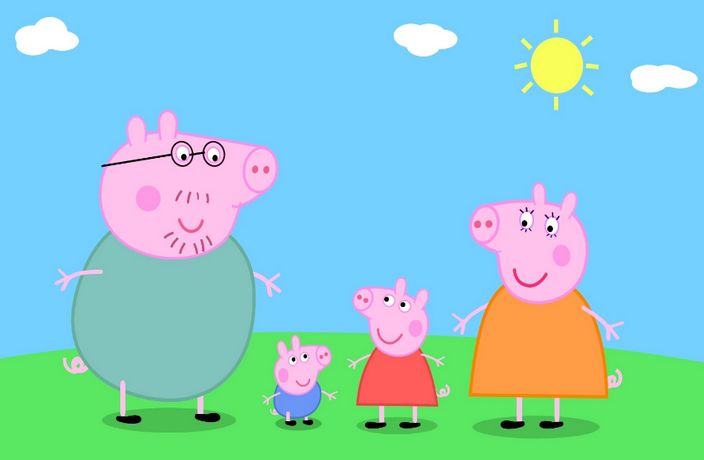 This article originally appeared on our sister website, That's Shanghai.
This article originally appeared on our sister website, That's Shanghai.
By Bridget O'Donnell
Fear not, Peppa Pig fans — the cartoon hasn't been banned in China.
Earlier this week, rumors surfaced that the hit British children's animated series was starting to get blocked in China. But that's not entirely true.
Instead, memes featuring Peppa Pig have been completely scrubbed from Douyin, a popular Chinese app that lets users stream short music videos (see previously: the 'Karma's a Bitch' challenge). Searches for the porcine heroine now return zero results, and the hashtag #PeppaPig appears to have been banned from the platform. Prior to the crackdown, around 30,000 Peppa-themed videos had appeared on Douyin.
Meanwhile, you can still watch episodes of the animated television show on CCTV, Youku, iQiyi and Tencent. (Phew).
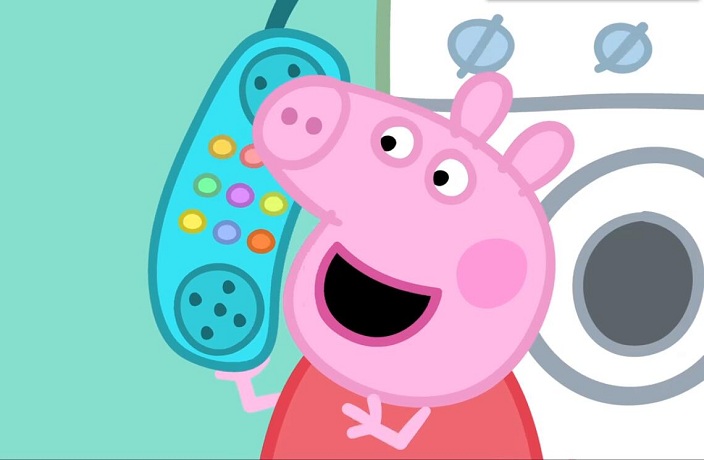
What a relief. Image via Urban Family
So why was Peppa blocked from Douyin? State-run newspaper China Daily explains:
The hit animation show has proven to be popular with not only younger children in China but also adults, leading Peppa Pig to earn the nickname Shehuiren, which is a slang term for gangster, and for the show to start spawning video parodies.
Fans have been posting drawings and tattoos featuring the character, linking the cartoon to gangster rappers, and remaking scenes though their own editing and dubbing.
A two-line rhyme that roughly translates as “get your Peppa Pig tatt, shout out to your frat” also went viral.
Although there hasn’t been a statement from Douyin about why it pulled the cartoons, people suspect Peppa’s appropriation as a “gangsta” image and its association with tattoos may have caused concern among parents.
In old Chinese stereotypes, tattoos are often seen negatively and are linked to gangsters and gangs.
As Sixth Tone reports, the cartoon character has recently become a "street couture icon," with celebrities showing off their Peppa temporary tattoos and other merchandise on social media.
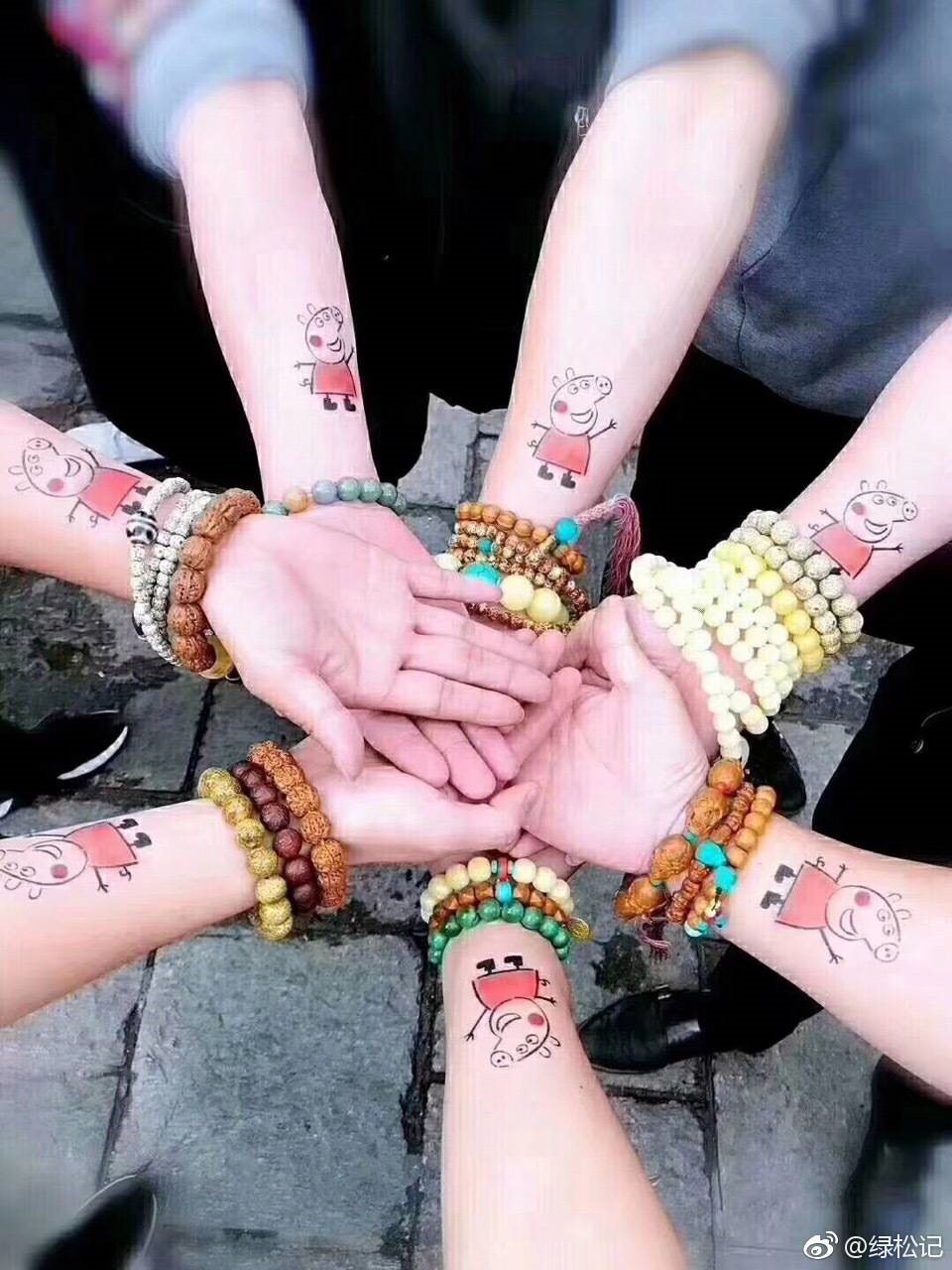
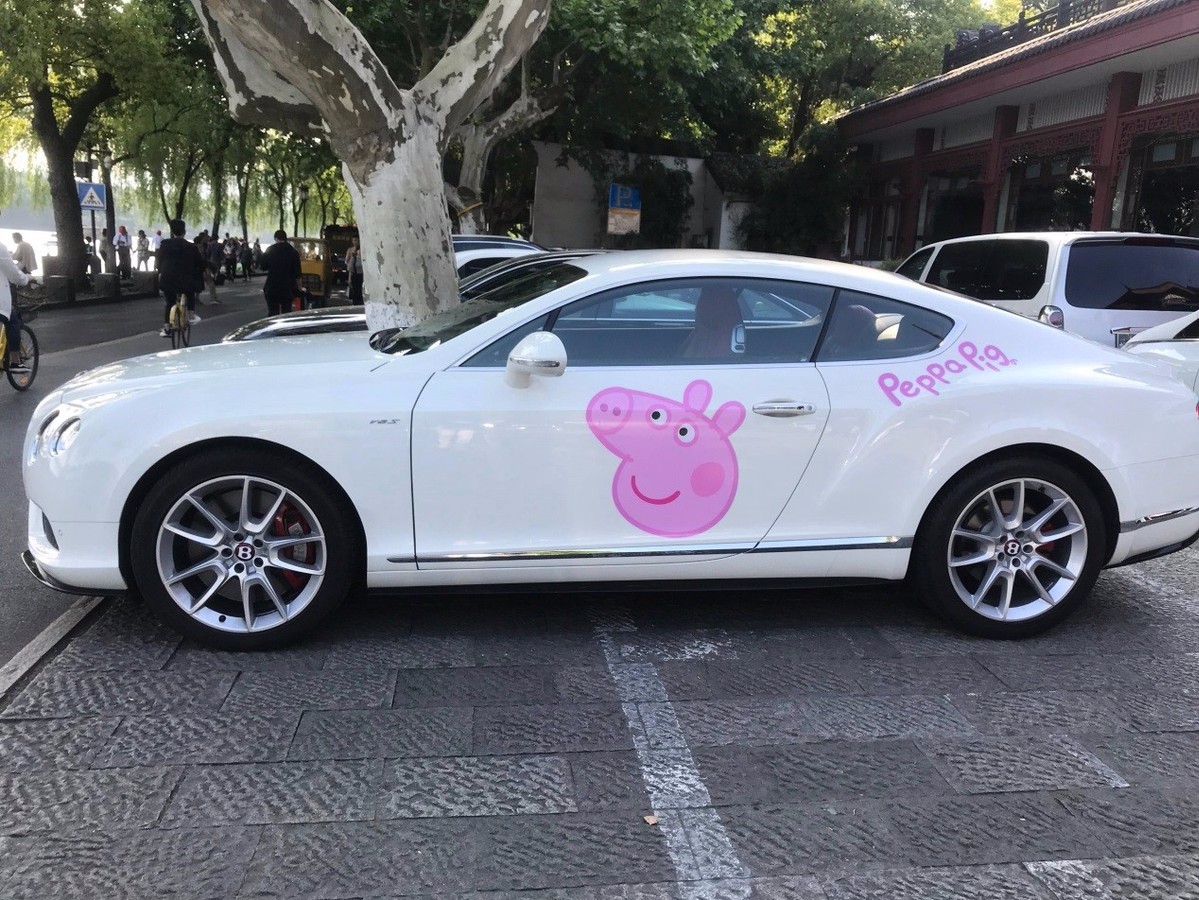
Images via China Daily
But the craze has also led to concerns over copyright and subversion. As state-run newspaper Global Times writes: "After Peppa Pig started to take on this subversive hue and subsequently go viral, some experts said the popularity of the cartoon demonstrates the social psychology of hunting for novelty and spoofing, which could potentially hamper positive societal morale."
Meanwhile, the edgy Peppa Pig subculture was condemned in a recent People's Daily editorial (translation via New York Times):
These are elements that are not conducive to the healthy development of cultural industries and we must be vigilant. After all, no matter how gangster Peppa Pig is, it cannot be allowed to destroy children’s youth and go beyond the rules and the bottom line.
Since first hitting the Chinese airwaves in 2015, Peppa Pig has been a huge hit in the Middle Kingdom. As China Daily notes, the show has been viewed more than 45 million times on some of China's most popular online streaming platforms. Peppa Pig theme parks are also scheduled to open in Shanghai and Beijing in 2019.
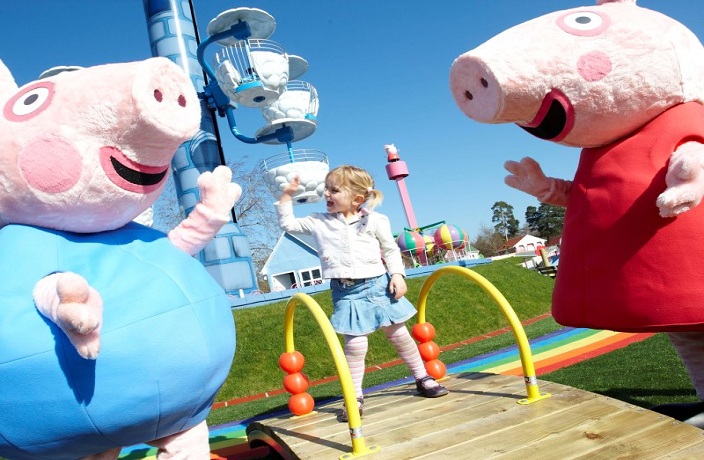
Coming soon! Image via Urban Family
But Peppa Pig mania has had its downsides, too. Last November, a parent's complaint about the show's influence on young children went viral on WeChat, leading some netizens to call for a boycott of the show. More recently, a mother likely experienced one of her darkest hours when her iPhone was disabled for 48 years after her child unsuccessfully tried to unlock the phone to watch episodes of the show.
[Top image via BBC]
This article was originally published by our sister magazine That's Shanghai. For more articles like this, visit the That's Shanghai website, or follow the That's Shanghai WeChat account (ID: Thats_Shanghai).

